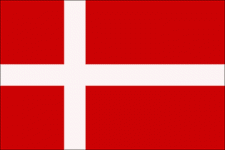
The Danish Rockwool Research Institute has published a new study showing that the reduction in social welfare benefits to refugees introduced in 2015 as integration benefits had an effect on finding a job. But the effect was small: 10 months after arrival, eight percent were already working, compared to four percent on migrant receiving the previous, larger benefits. After 12 months, the difference dwindled. This effect was only for men, however; there was no effect observed for women. The results are interpreted by many as the low benefits being a success.
But the report also notes that crime rates for women have slightly gone up, linking this again to the low benefits, with two percent of women caught shoplifting when they don’t have money for food.
The Rockwool Foundation study is based on refugees and reunified family members who arrived one year before and one year after September 2015, when the benefits were lowered.
The main focus should be on the around 88% of the men and the 98% of the women who are still dependent on the benefits after 12 months and who face difficulties making rent and paying for food, medicine and other basics. The Danish Institute for Human Rights published a report last year about families on integration benefits, showing that the life in poverty had negative effects on integration, as it was not possible for many to participate in social activities like sports or birthday parties. According to the institute, the benefits are in their existing form in breach of the Danish constitution.
The government has established a working group to look at the whole area of social benefits, to come up with a more fair distribution of benefits.
Details
- Authors
- Jacob Nielsen Arendt
- Geographic area
- Denmark
- Contributor type
- Non-Governmental Organisations/Civil Society
- Original source
- Posted by
